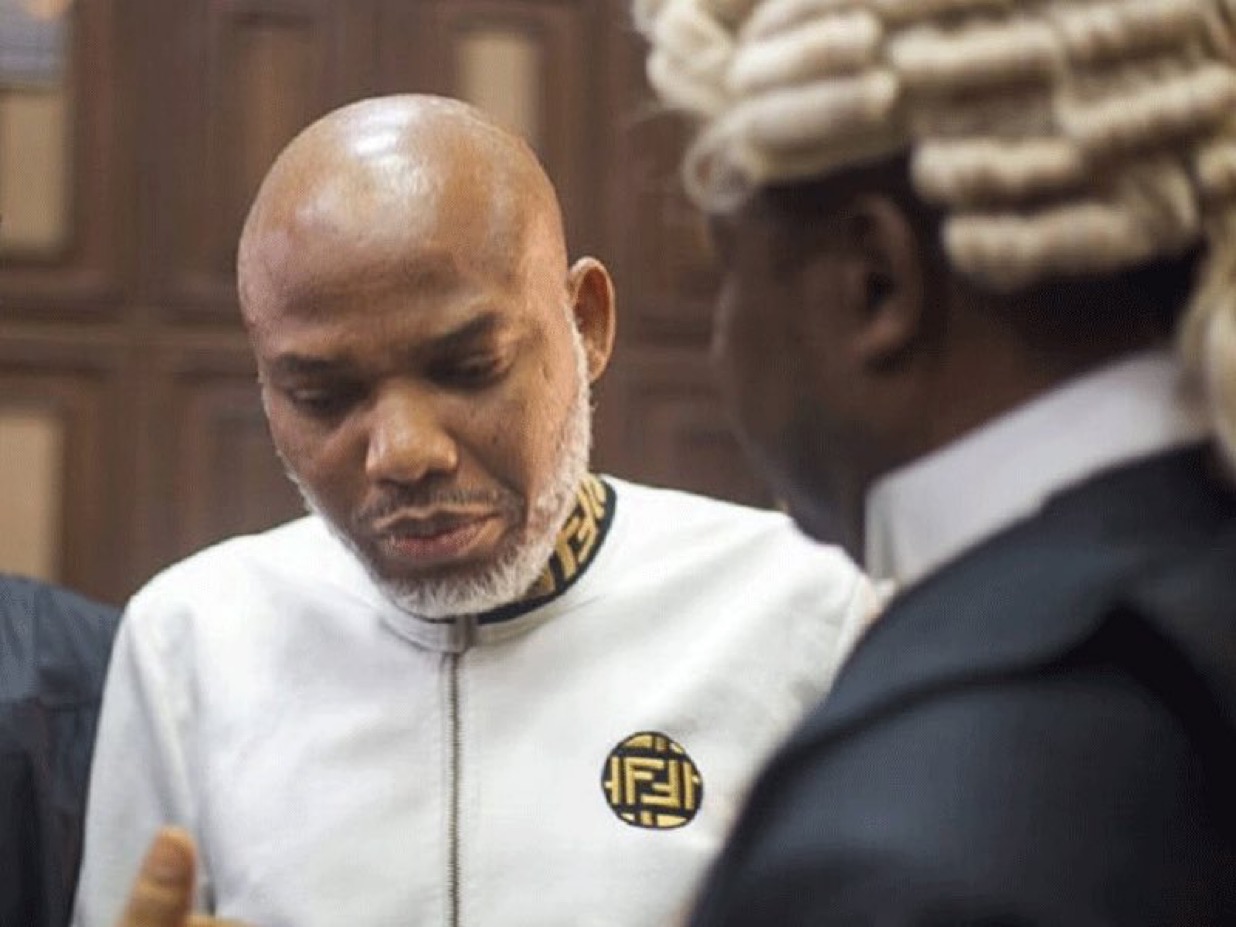

In a dramatic and precedent-setting decision, the Nnamdi Kanu trial concluded this Thursday as the Federal High Court in Abuja announced that Kanu has been sentenced to life imprisonment after being convicted on seven counts relating to terrorism.
The verdict represents a long-running saga of legal, political and ethnic tensions in Nigeria. Kanu, leader of the banned Indigenous People of Biafra (IPOB), was accused of orchestrating terror-related acts in the southeastern region, enforcing so-called “sit-at-home” orders, inciting violence and providing bomb-making instructions.
Judge James Omotosho, presiding over the case, dismissed the defence’s repeated objections regarding jurisdiction and legal basis, noting that Kanu had declined to mount a defence after exhausting the six-day window allocated by the court.
Before handing down the sentence, Judge Omotosho affirmed that while the right of self-determination is recognised in principle, any attempt at secession must proceed under the Nigerian constitution and legal framework — which he found was not the case in Kanu’s campaign.
Though prosecutors had pressed for the death penalty, citing the gravity of the offences and the disruption to national peace, the court opted for life imprisonment. The judge cited international trends against capital punishment and insisted on mixing justice with mercy in this case.
Kanu’s background adds layers of complexity to the case. Born in 1967, the same year the original Republic of Biafra attempted secession, he founded IPOB in 2012 with the goal of reviving Biafra in Nigeria’s southeast. He holds British citizenship, has been tried under multiple judges, and was re-arrested in Kenya in 2021 before being brought back to Nigeria.
His trial had been marred by delays, jurisdictional objections, and his own refusal to present a defence. As recently as October 27, 2025, Kanu told the court he “cannot be convicted under a non-existent law” and declined to call 23 witnesses he had earlier proposed.
In the lead-up to this verdict, concerns were raised about prolonged detention without resolution. For years Kanu had been held in custody. One prominent voice, actor-turned-politician Kenneth Okonkwo, decried what he called “justice delayed” — pointing out the strain of keeping a man in detention for nearly seven years before a final decision.
Immediately after the verdict, reactions poured in from various quarters. Supporters of IPOB, who see Kanu as their leader and symbol, expressed dismay and warned of renewed agitation. Meanwhile, government officials and security analysts welcomed the decision as a firm stand against militancy and separatist violence in the southeast.
Security consultants estimate that since the resurgence of IPOB-linked “sit-at-home” orders and communal unrest, more than 700 deaths and multibillion-naira losses to the economy have been recorded.
The ruling is likely to reverberate far beyond the courtroom. In the southeast, the judgement raises questions about the future of secessionist movements and the government’s strategy for handling such politically-charged cases. For the judiciary, it underlines the challenges of balancing constitutional fundamentals, human rights, and national security imperatives.
However, legal experts note that life imprisonment is not the end of the road. Kanu and his legal team are expected to file appeals, contending among other things that the terrorism law applied was not in place at the time of his alleged offences and that the trial process was flawed. Indeed, just days ago he filed a motion at the Supreme Court of Nigeria seeking to challenge a previous judgement remitting his case back to the Federal High Court.
So what now comes next? The government must act swiftly to manage the fallout. Security will be tight in the southeast as both protesters and supporters of the now-imprisoned Kanu may react. Politically, this may harden the divide between the federal government and Igbo-speaking activists who view the verdict as politically motivated. On the legal front, the appeals process promises to be long and complex — with ramifications for how terrorism legislation is applied in Nigeria going forward.
For now, justice has been delivered in what many see as one of the most significant judgments in Nigeria’s recent history. Whether it brings lasting peace or fuels deeper unrest remains an open question — but the verdict has certainly marked a turning point in the struggle between separatist agitation and the Nigerian state.
Moment Justice Omotosho sentenced Mazi Nnamdi Kanu to life imprisonment. https://t.co/a57zaJ8YOJ pic.twitter.com/rFhNkzoR7L
— CHUKS 🍥 (@ChuksEricE) November 20, 2025


